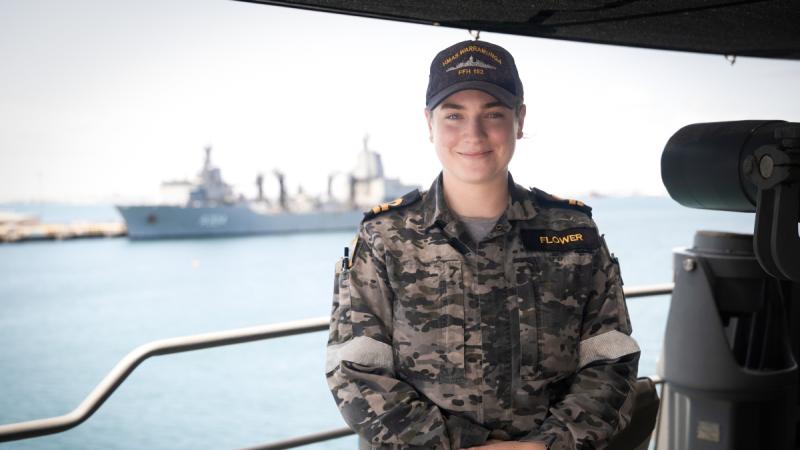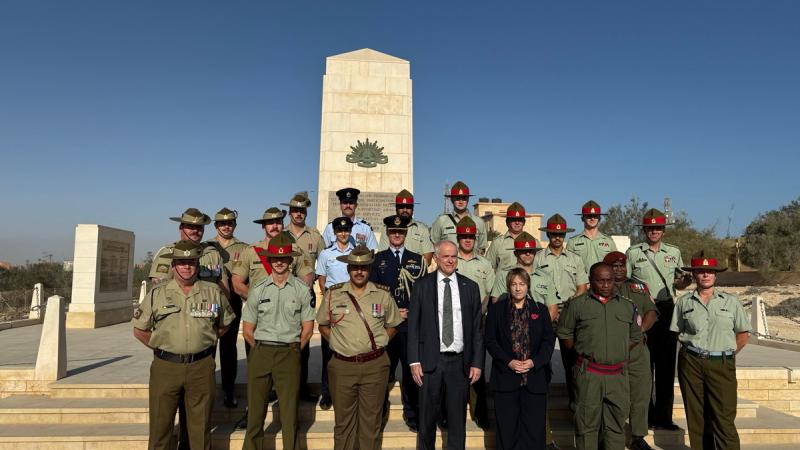30 October 2025
Delivering ‘cyber assurance’ to Defence operations is a responsibility that requires cyber warfare specialists to work abroad, working in a domain that grows in complexity every day.
Recently deployed to Japan for Operation Argos, cyber warfare specialist Leading Seaman Joel Kviz said deploying in support of Defence operations and exercises was essential to providing mission assurance and safeguarding critical systems in the digital battlespace.
“Remote monitoring has its own limitations,” Leading Seaman Kviz said.
“Being in location just gives us much greater access for monitoring the system, so we can be aware of a lot more and respond immediately.
“Over the past couple of years, awareness of cyber and its role as part of the deployed operation has significantly grown and the cyber assurance piece will start to become a standard part of operational planning.”
The importance of cyber assurance to Operation Argos comes in support of Defence missions to enforce United Nations Security Council sanctions on North Korea.
During the most recent Operation Argos deployment, a RAAF P-8A Poseidon flew missions from Kadena Air Base in Japan to monitor and deter illegal ship-to-ship transfers of sanctioned goods.
Leading Seaman Kviz said despite the growing awareness, there was still a misconception about the purpose of deployed cyber specialists.
His role is focused on assuring systems rather than policing people, monitoring for issues such as unauthorised access or devices connected to the wrong network.
“We're there to assure the systems, not to pin blame on individuals for deficiencies in the systems,” Leading Seaman Kviz said.
'Being in location just gives us much greater access for monitoring the system, so we can be aware of a lot more and respond immediately.'
In 2024, the ADF’s cyber units were taken from their individual services and brought under the newly formed Cyber Command.
Leading Seaman Kviz said the move strengthened cooperation and understanding, helping specialists share knowledge and speak a common language across the services.
Part of 138 Signal Squadron, Leading Seaman Kviz said each deployment required a tailored approach to meet different technical setups and mission environments.
“Each deployment is a little bit of a case-by-case where there’s all these niche specific changes that you have to make each time just because it’s a different situation,” Leading Seaman Kviz said.
On Operation Argos, he monitored networks for suspicious and malicious activity and responded to incidents, using digital forensics to trace and analyse irregularities.
Working from the US-run Kadena Air Base meant adapting his tools and procedures to fit within local restrictions while maintaining full capability.
Physical access to the systems was crucial, enabling a mission-specific view of monitoring and response relevant to the Operation Argos context.
Due to the P-8A Poseidon’s unique and tightly controlled systems, Leading Seaman Kviz said working through a single access point made monitoring more efficient than in larger, multi-network operations.
Operating alongside allied forces added an extra layer of experience, from navigating language barriers to working within a US base environment.
The experience allowed Leading Seaman Kviz to strengthen his technical skills while contributing directly to operational goals in the region.
“It’s a little bit of what I joined to do, the military-specific experience that I couldn’t get elsewhere,” he said.


